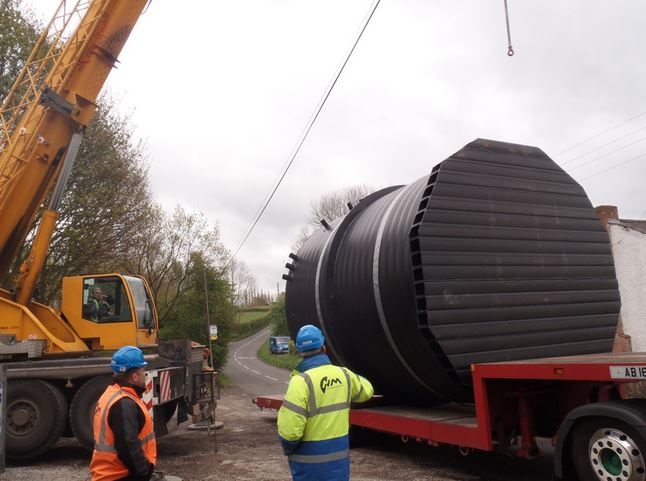Countrywide Telecoms have developed an ingenious product that has taken the construction industry by storm that guarantees to connect your site or show home to superfast broadband and phone lines within three working days. Like any business, construction sites rely on internet and email to communicate quickly and effectively. You need quick, secure connectivity from the start of your project to order supplies, liaise with architects/planners, and communicate with your head office and your customers. Yet you typically face a nine month wait for a BT Openreach lines to be installed. Now let’s talk about how broadband should be done… Our rapid site broadband solution is an ingenious device, which provides rapid broadband and phone lines wherever installed, creatively combining and utilising specialist antenna technologies. This innovative product by Countrywide Telecoms provides you with a solution to a serious challenge that has been faced by the housebuilding/construction industry over many years. Sound too good to be true? Your absolutely right, that’s what all the other developers said, however, since this product launched just under twelve months ago, Countrywide Telecoms ‘Office in a Box’ solution has to date, been successfully installed on more than 100 construction sites nationwide for leading housebuilders including Galliford Try/ Linden Homes, Barratt, Bellway Homes, Affinity Sutton and R Durtnell & Sons. The list is growing rapidly through word-of-mouth referrals. So how does it work? You send Countrywide Telecoms your sites location We then perform a virtual Site Survey and send you our results that include predicted Broadband speeds You then agree with us an installation date We will arrive in site, liaise with your site agent, fit the broadband and phone lines. As part of the installation process, we don’t just stop at the broadband and phone lines, we will also set up your printers and computers, as well as provide you with full contact details for our 24/7 technical support team where we also monitor your sites connectivity on a round the clock basis to ensure you are receiving the best service possible at no extra cost. Don’t just take our word for it, here’s what our existing customers have to say… Natalie Flint, Sales & Marketing Director, Linden Homes says: “When we first heard about Office in a Box a year ago, we thought it was too good to be true – we could never get IT systems installed at our developments in time for launch. We decided to give it a try and commissioned Countrywide Telecoms to install broadband in the marketing suite at our flagship site Swallowhurst in Cranleigh. It was simple and instant, and since then we’ve never looked back. Countrywide Telecoms now provides a start-up service and ongoing support for all Linden Homes Guildford sites.” ————————————————————————————————————————————— Lynnette St Quintin, Sales Marketing and Customer Services Director, Barratt Homes, says: “Our Milford Grange site, in Storrington, is in a rural location and we were having real difficulties in getting phone lines and broadband installed. After a long delay, a major telecoms company told us that we’d have to wait at least another three months, so it wouldn’t be ready in time for the launch. Countrywide Telecoms set up communications in the marketing suite in less than 48 hours. I can’t rate the company highly enough.”














